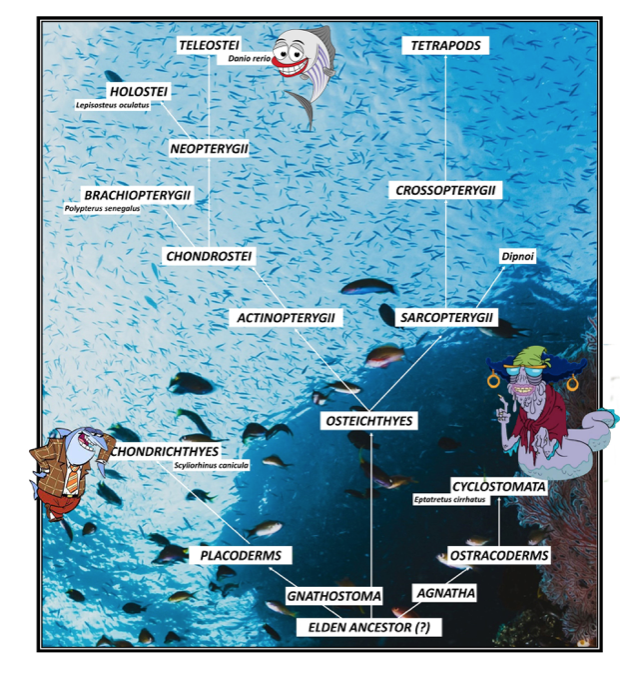I pesci rappresentano i primi vertebrati da cui è possibile tracciare un filo conduttore che, passando attraverso tutte le classi, giunga fino all’uomo. La caratterizzazione cellulare in chiave filogenetica è utile per comprendere la forma e la funzione delle cellule. Lo scopo di questa proposta è quello di sottolineare l’importanza dello studio filogenetico dei pesci nella ricerca scientifica, in particolar modo applicata allo studio dell’evoluzione cellulare di apparati e sistemi anatomici, mostrando una collezione di modellini di organi e di vetrini di tessuti, forniti di QR code collegato all’immagine macroscopica e microscopica del pesce corrispondente. Tutto questo permetterà un avvicinamento del pubblico alla biologia dei pesci, cercando di instillare nei partecipanti un senso di curiosità e fascino.

